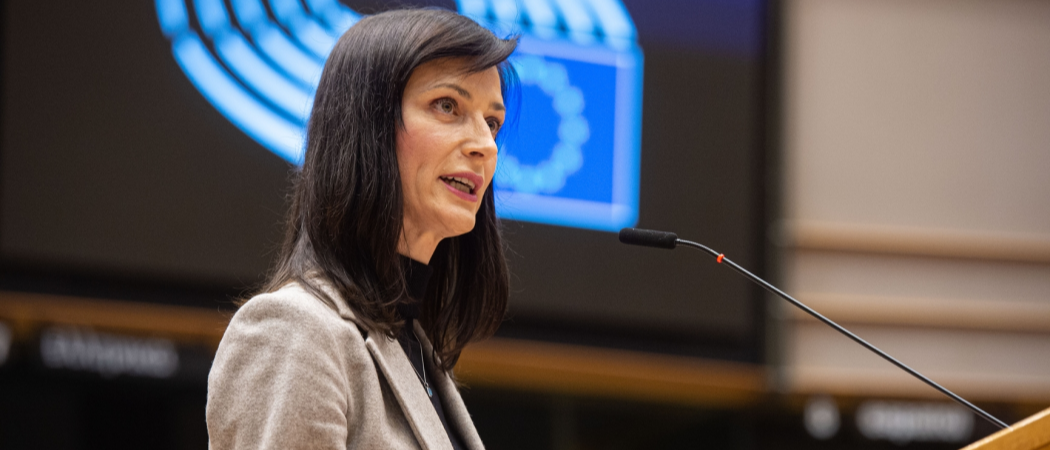Researchers grow frustrated at looming funding gap, with European Commission putting back publication of detailed calls to the end of May. Some commentators suggest the delay is down to row over excluding UK, Israel and Switzerland from space and quantum R&D

EU commissioner for research and innovation Mariya Gabriel. Photo: European Parliament
The European Commission has yet again delayed the adoption date of Horizon Europe work programmes, leaving researchers and MEPs to worry about a potential funding gap.
Last month, the European Parliament gave its final stamp of approval to the Horizon Europe legislation, opening the way for the Commission to go ahead and implement the programme, which was scheduled to kick off in January.
Taking advantage of a clause that allowed researchers to apply for funding before the Parliament vote, the Commission has already launched calls for proposals for the European Research Council and the European Innovation Council, the EU’s new innovation scale-up agency.
However, for the rest of the €95.5 billion programme, the Commission is still finalising documents laying out the timelines, budget and scope of dozens of calls for proposals over the next two years.
Last week, EU commissioner for research and innovation Mariya Gabriel reassured MEPs the documents will be adopted soon. “The final work is being done and [the work programmes] will be published in the coming weeks,” she said.
The work programmes due to be published in March, then that deadline was pushed to April, and subsequently to the first half of May. Now, Commission officials confirmed the documents will not be available until the end of May, postponing once more their official adoption.
It’s unclear what is preventing publication, given the budget was agreed last year and the final legislation has been approved by the Parliament.
Parliament’s Horizon Europe rapporteur, German MEP Christian Ehler told Science|Business the Commission could have had the work programmes ready in January, since the shape of the budget was largely made clear at the EU leaders’ summit in July 2020 and most of the content had been fleshed out as early as April 2019.
“Our researchers are ready, and Europe needs them to get to work, so we needed the work programmes yesterday,” Ehler said. "I do not understand what is causing this delay.”
Researchers say the delays are adding more uncertainty for scientists whose work has been hit by the Covid-19 pandemic and the ensuing uncertainty around the future of national R&D budgets.
Further delays could result in funding gaps, Stephane Berghmans, director for research and innovation at the European University Association, told Science|Business. “It’s quite frustrating,” Berghmans said.
A row over quantum and space
Some stakeholders believe the reason for the delay is that the Commission is still trying to convince member states to exclude Israel, Switzerland and UK from Horizon Europe quantum and space projects.
The three countries are currently negotiating their associate member status in Horizon Europe, but the Commission wants to bar them from quantum and space projects to protect EU cutting-edge R&D in key strategic sectors.
Kurt Deketelaere, secretary general of the League of European Research Universities (LERU), subscribes to this theory. “I presume the hiccups regarding the few parts of [Horizon Europe] from which associated countries will be excluded is holding up all the rest,” he said.
University associations across member states are urging the Commission to lift its threat to bar the Israeli, Swiss and UK researchers from quantum and space projects.
"Whether the delay is an attempt to force a position is not for me to say,” said Ehler. “However, the fact that the discussions are only taking place now illustrates the absurd situation of the delay, because these discussions could have taken place months ago.”





 A unique international forum for public research organisations and companies to connect their external engagement with strategic interests around their R&D system.
A unique international forum for public research organisations and companies to connect their external engagement with strategic interests around their R&D system.